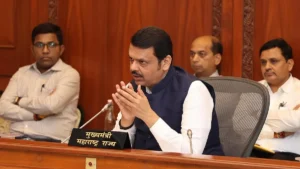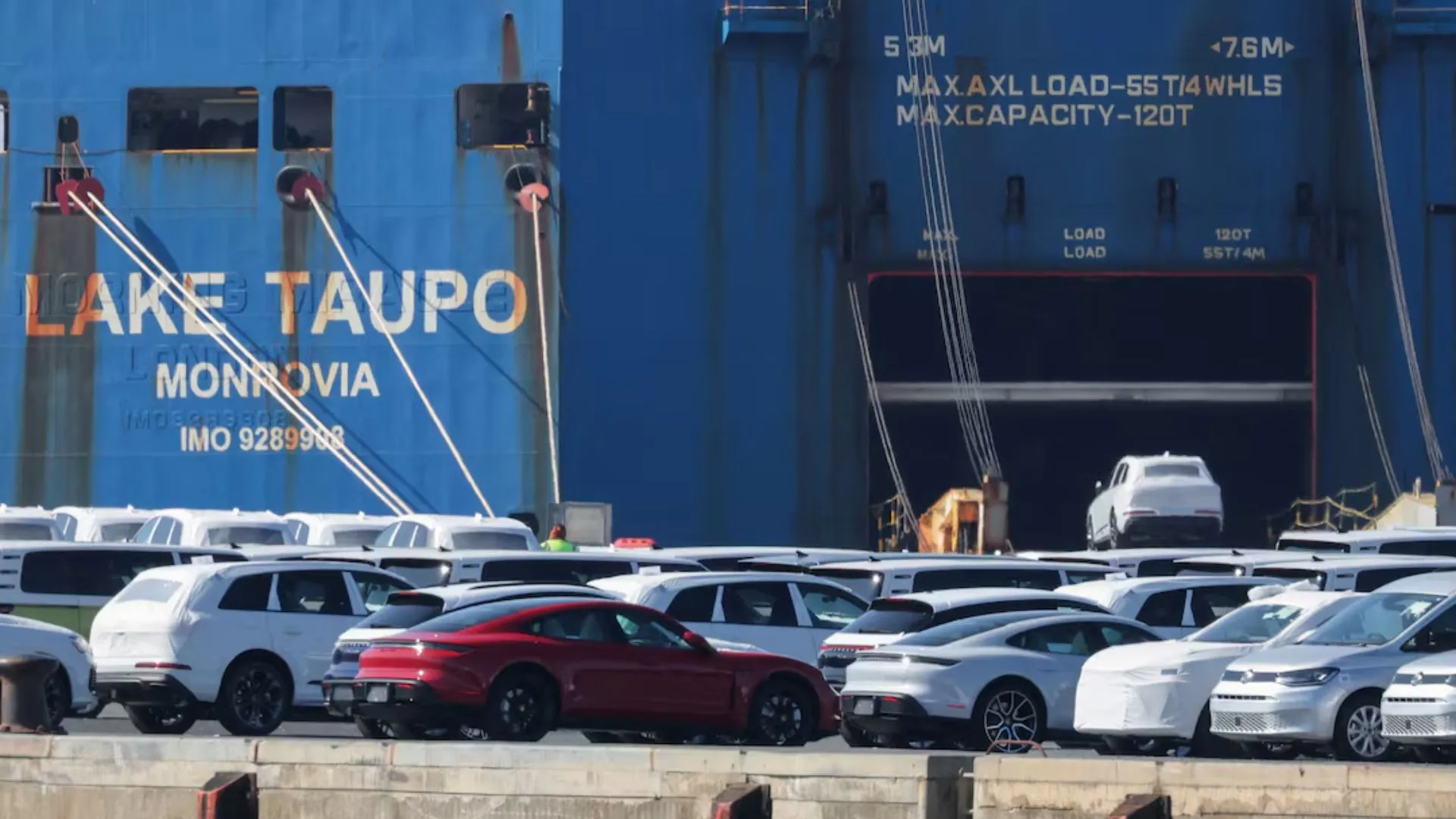In this exclusive interview with NewsX, Professor Michael Short of University of Teesside discusses the critical role of STEM in driving the transition to Net Zero energy systems. He highlights how students and faculty in India, particularly in engineering and informatics, can contribute to this global transformation. The conversation also explores collaborations between India and the UK, innovations in renewable energy, and the ongoing UK-India partnerships, emphasizing how these efforts can accelerate the shift toward a sustainable, Net Zero future.
“Energy is fundamental to growth and sustaining life, permeating every aspect of society. For centuries, mankind has relied predominantly on fossil fuels, with over 80% of the world’s energy still coming from them in 2023,” says Professor Short. “However, almost all pathways to achieving Net Zero require a complete rethinking of how energy is generated, transmitted, stored, and used. This transformation demands both technical and social paradigm shifts, along with substantial research and innovation in areas such as carbon capture, alternative fuels, and renewable energy systems.”
Professor Short highlights the growing role of digital transformation and AI in these areas. “Digital transformation and AI will play a vital role in aiding research activities and implementing new technologies in the market,” he explains. “This is why universities, particularly in India, can contribute by aligning their research and teaching with regional, national, and international goals.” For students, he emphasises the importance of building a strong foundation in mathematics, coding, AI, data science, climate science, and sector-specific skills. “The transition to Net Zero has just begun, and with much work ahead, embracing critical thinking, persistence, and resilience will be beneficial,” he adds.
drBritish Council’s GREAT Talks: Bridging UK and Indian STEM Communities
Professor Short’s presentation sheds light on the British Council’s GREAT Talks series and how it fosters meaningful collaboration between UK professionals and Indian academics, researchers, and students. “The GREAT Talks go beyond just academic exchange,” Professor Short states. “They focus on critical areas like the Net Zero energy transition, sharing research experiences, addressing skill gaps, and creating opportunities for collaborative innovation.”
He cites examples such as the joint research centre between Teesside University and Vellore Institute of Technology and the Royal Academy of Engineering’s UK-India partnership on AI for electric vehicle charging. “These collaborations are a prime example of how the GREAT Talks facilitate knowledge transfer, research partnerships, and international student exchanges,” says Professor Short. “The talks create tangible pathways for both academic and professional cooperation between the UK and India.”
Innovations in Smart Energy Systems and Potential Collaborations with Indian Institutions
Professor Short highlights key innovations from his funded research projects, particularly in control engineering and informatics for smart energy systems. One such innovation is a telecontrol and telemonitoring system for offshore wind resources, developed in collaboration with a company in Tees Valley, UK. “The system, now operational on 13 offshore wind platforms, regulates power exchange to the UK National Grid,” says Professor Short.
Further collaborations in India could focus on the introduction of AI and learning capabilities for aggregated control services like Vehicle-to-Grid and battery-based grid services. “As EVs become more widespread in India, this is an area ripe for collaboration,” he suggests. “The integration of intelligent control, EV chargers, battery storage, and solar generation in India can significantly scale up renewable energy adoption.”
Additionally, work on energy efficiency, predictive maintenance, and asset management using AI and IoT is being commercialized for use in buildings, particularly in regions with high energy demands, such as India. “Collaboration with Indian institutions could prove mutually beneficial in tackling energy consumption challenges in India’s HVAC systems,” Professor Short notes.
UKIERI Solar Energy Project with Tamil Nadu Agricultural University
Professor Short is also involved in the British Council’s UKIERI solar energy project with Tamil Nadu Agricultural University (TNAU). This strategic collaboration focuses on advancing agrovoltaic (APV) systems, exploring renewable energy solutions tailored for agricultural contexts. “The project aims to test innovative photovoltaic technologies, such as transparent, semi-transparent, and bifacial panels, in various crop environments to assess their potential for carbon reduction,” Professor Short explains.
Key components of the project include establishing a research base for students to work on APV design, measurement, and carbon saving calculations, as well as microgrid implementation. “The research findings will be integrated into sustainability and renewable energy modules at both Teesside and Tamil Nadu Agricultural Universities,” he adds. Knowledge dissemination through workshops, exchange visits, and journal publications will further foster collaboration and help develop a skilled workforce in APV technology.
Overcoming Challenges to Achieve Net Zero by 2050: UK-India Collaboration
Achieving Net Zero by 2050 is an enormous challenge, requiring a complete overhaul of energy, transportation, industrial, and residential infrastructures. “This transformation involves deploying new technologies for energy generation, conversion, transmission, and storage, as well as exploring alternate fuels like hydrogen and carbon capture technologies,” says Professor Short.
He highlights how UK and Indian partners can align their activities to address these challenges. “By engaging with industry partners, stakeholders, and research bodies, both nations can draw co-operative research and development funding from bilateral programs, such as the UK-India partnership scheme with Innovate UK and India’s DST,” he notes.
Professor Short further emphasizes that new technologies must be commercially viable to compete with fossil fuels. “It’s crucial that these innovations are able to transition towards being competitive with traditional fossil-fuel based technologies to ensure market adoption globally,” he asserts. He also stresses the importance of ensuring a fair and inclusive transition, mindful of the socio-economic realities across regions. “Collaboration between India and the UK should take into account regional socio-economic contexts to develop practical, equitable solutions.”
Developing Solar Technology Education Content and Boosting Student Mobility
With concerns over future shortages in skilled workers for the solar technology sector, Professor Short and his colleagues in the UK and EU recently concluded a project to identify training requirements and create educational content to bridge the skills gap. “We identified training requirements and created teaching materials to plug the skills gap, and the training content is now available online,” he shares.
As part of the UK-India Education and Research Initiative (UKIERI), they are collaborating with South Indian partners to integrate renewable energy research into undergraduate and postgraduate courses. “We have signed MoUs with South Indian partners to foster student and staff mobility, especially in solar technology and Net Zero themes,” he adds.
The collaboration also includes efforts to simplify student mobility, such as recognizing prior learning and qualifications and facilitating short-term academic internships. “These efforts will help drive forward the knowledge sharing needed to meet solar energy goals in the UK, Europe, and India,” says Professor Short. “They will play a crucial role in decarbonizing the energy sector and creating skilled employment opportunities in clean energy.”
Professor Short’s interview underscores the importance of international collaboration and education in scaling up solutions for the energy transition, highlighting the transformative role that STEM can play in creating a sustainable future for both the UK and India. “The collaboration between our two nations will be instrumental in overcoming the challenges and driving the change required to reach Net Zero,” he concludes.






















